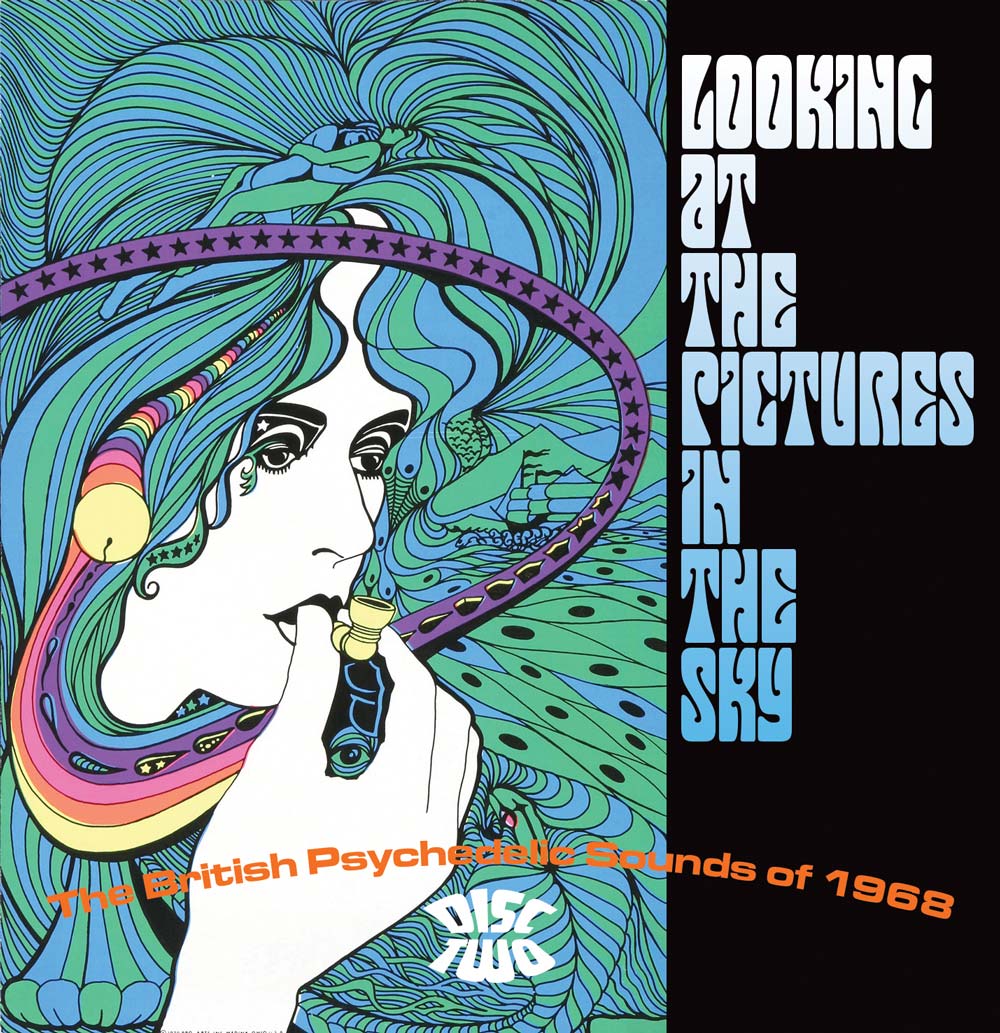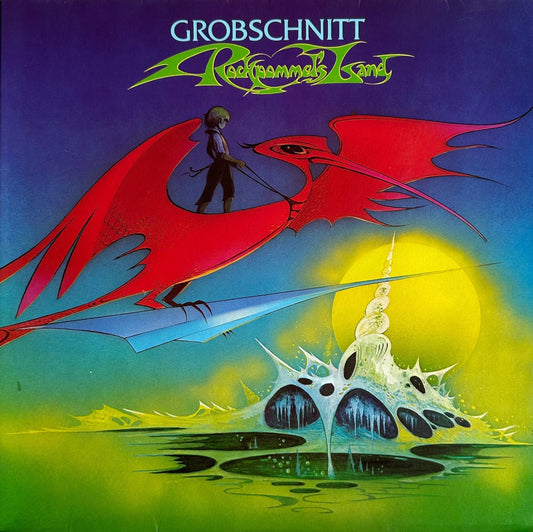Cream’s Disraeli Gears is being moved to a later issue.
Here then are more UK contenders:
The Move, Traffic, Procol Harum & The Yardbirds
The Move—singles

Why are they here? They only released singles until 1967. Those singles, however were very significant.
In 1966, they released their first one “Night Of Fear” which reached number 2 on the UK singles record charts. It did sound like a song of its day but there were elements that foretold the greatness to come. The structure, harmonies and musicianship was outstanding.
The band also had, as its creator, the incredible Roy Wood who became a significant UK songwriter and also was a great vocalist. After Roy left, he was replaced by Jeff Lynne. As you might surmise then, the Move were heavily influenced by the Beatles, as his creation of ELO fully exposed several years later.
The Move were really the first of the next generation of British Invasion bands but they never really took off over here.
That next wave consisted also of Donovan, Pink Floyd, the Moody Blues, Procol Harum, and Traffic, all of whom experienced success on this side of the pond.
The Move remain, however, one of my favorite bands because their songs were just so damn good.
In early 1967, after creating a near-riot at the legendary London Marquee Club (where the Stones and the Who were among the other famous ‘house’ bands prior to their world wide breakout). The Move was asked to headline another famous concert hall, the Roundhouse “Psychelic Mania” show— which also led to a riot.
Their next super psych single, released in January ‘67 was “I Can Hear The Grass Grow” which also reached number 2!
This led to their next single “Flowers In The Rain” that September, which brought along with it an astonishing amount of publicity for two reasons:
—It was the very first song ever played on the newly established BBC crown of music “Radio 1” (Not the Beatles, Stones, Kinks, etc…but The Move!)
—Along with the release, the band’s producer, Tony Visconti, thought it would make for great publicity to mail out a promotional post card with a doctored photo of the Prime Minister Harold Wilson in a scandalous depiction with a hooker. The band was sued, lost and had to turn over all the royalties to a charity chosen by the Prime Minister.
Great publicity, right?
They were followed by the MI5 and it scared the crap out of them but they became household names in the UK music scene.
I had read all about this in the British music press back then and fell in love with this band.
A band with major cred that sadly, never broke over here.
But I an giving them their due as part of this series.
Because of all that they stood for and sounded like, but no full LP release, I give them a Psychedelic Factor: 6/10
PS: Their best work was yet to come in 1970…
And now on to three super faves, Traffic, Procol Harum, and The Yardbirds.
If 1967 and the entire psych movement never gave us anything else, I would take the astonishing vocals of Stevie Winwood and Gary Brooker, respectively, as one of the greatest aspects of the scene.
Think about what the British invasion gave us vocally: besides Lennon, McCartney & Harrison it also gave us Eric Burdon from the Animals, Van Morrison of Them, Rod Stewart, Stevie Winwood and Gary Brooker.
What an unreal collection of vocal talent!
Traffic, Dear Mr. Fantasy

Stevie already blew us away an 1966 when, at the age of 16, he sang lead on the Spencer Davis groups worldwide breakout single “Gimme Some Lovin”.
Then, a year later, teaming up with Dave Mason, Jim Capaldi and Chris Wood, he created Traffic and gave us the classic track “Dear Mr. Fantasy”.
The album had a number of standout tracks: “Hole In My Shoe” (The first single off the album), “Paper Sun” (“Paper Sun” then became a code word for a certain kind of LSD delivery system, which is best described as a tiny piece of paper with a brown dot of liquid LSD, also known as “brown dot”), and the songs “Heaven is in Your Mind” and “No Face, No Name, & No Number”.
The band wore Nehru Jackets (very Indian and therefore very hippie, druggie influenced ) on the cover and in the gatefold photos of the UK version of the album. The US version of the album was titled Dear Mister Fantasy; the UK version was just named Traffic. The song, “Paper Sun”, which led off the US release, was the first single in the UK and was not on the UK release.
Another amazing 1967 debut with great songs & great singing, with very trippy production qualities.
Future albums like John Barleycorn Must Die and The Low Spark Of High Heeled Boys cemented their status as one of the best bands to come out of the UK.
Because of the quality of most of the songs, “Paper Sun” being an acid drug reference, the UK cover art and great music to get high on, I give them:
Psychedelic Factor: 8/10
Procol Harum—debut album

John Lennon was known to make very famous proclamations about all things rock n roll such as:
“If rock ‘n’ roll had another name it would be called Chuck Berry”
“Before Elvis, there was nothing”
Then this….
In an interview in the British press in 1967 to promote Sgt. Pepper, John was asked if he listened to a lot of new music.
Here is the quote:
“…Procol Harum’s “Whiter Shade Of Pale”. It’s the best song I’ve heard for a while. You play it when you take some acid and … whoooooooo.”
That quote is really all that is needed.
That song, in the summer of 1967, ruled the airwaves like no other. Both top 40 radio & the new FM free form radio couldn’t get enough of it. Neither can I, 50 years later.
Maybe the most fun for me writing this series is that I can assume that 99.9% of you, whether you agree with me or not, immediately start to hear these songs in your head.
This song in particular just always makes my day.
It doesn’t ever sound dated.
What a debut hit on an album of ‘Veddy British’ sounding mediocre pop songs.
Procol Harum gave us the great drumming of BJ Wilson, and also introduced us to Robin Trower.
It also gave us a great lyricist in Keith Reid.
Another song on the album, “Conquistador”, interestingly, became their second-biggest hit 5 years later when performed live with The Edmonton Symphony Orchestra.
The album cover, a black & white drawing of a girl in a garden and an instructional back cover quote:
“To be listened to in the spirit in which it was made”
This, I surmise, implies that external influences could increase the aural satisfaction of the music contained herein.
I was not impressed by most of the other material on the album, besides the 2 stand out aforementioned tracks.
Their follow up album, Shine on Brightly, was a much stronger effort and future albums Home and Broken Barricades rarely left my turntable.
Such was the power of “Whiter Shade of Pale” and Gary Brooker’s vocals that they were added to this list.
2 great songs, trippy album cover art, and not great production. As such, I give this album a Psychedelic Factor: 6/10
The Yardbirds, Over Under Sideways Down

1966 gave us two albums that basically foretold the coming of the “Tsunami of Psychedelia”: The Beatles’ Revolver, especially the songs “Tomorrow Never Knows” and “Taxman” (Yes, that is Paul playing the Indian-inspired guitar solo on Taxman), and the Yardbirds album, Over Under Sideways Down.
Since The Beatles will be so ably represented in this shootout with Sgt. Pepper, I am going to give my attention to the outlier of this whole genre:
The Yardbirds.
This band was such a purist blues band in their inception that their world wide pop hit “For Your Love” so disgusted their newly minted guitar hero Eric Clapton that he felt he had to leave the band to join John Mayall’s Blues Breakers, only to be replaced by, many would argue, the greatest of all British guitarists, Jeff Beck.
Beck brought with him amazing guitar technique and compositional sophistication with Indian modality layered over blues scales.
No one had done this yet. Not even Jimi!
I think Jeff was second only to Keith Richards in the use of the guitar effect “the fuzz box” (as in the opening riff of “I Can’t Get No Satisfaction”) to add distortion and tonal fluidity to guitar solos. It’s all over this album.
The song, “Over Under Sideways Down” sure ain’t blues.
My guitar buddies at the time, just trying to deal with blues players like Mike Bloomfield of the Paul Butterfield Blues Band (our guitar hero in the US in 1966), couldn’t get the riff out of their head, let alone trying to play it.
The instrumental song, “Hot House of Omagarashid” sounded like a celebration at an Indian wedding albeit with a really insane blues-ish guitar solo layered over it.
As was often the case pre ’68, many UK and US album releases had very different track listings.
In fact, there was so much “Indian sounding melodies” that The Yardbirds have their own sub-category known as “Raga Rock”. That, in and of itself, gets them on this list How the record label dealt with this is beyond me, but we are all better off for it!
Remember that, in those days, any song with Indian overtones was perceived as very mystical, and by extension, very psychedelic!
This was 1966, mind you, and we here on this side of the pond were lumping the Yardbirds in with The Rolling Stones and The Animals as “Blues Saviors”.
Totally weird.
Beck’s playing on the song “Jeff’s Boogie” cemented his hero status, however!
There are moody vocal arrangements with tons of reverb as well as in the song “Turn Into Earth” and“Ever Since The World Began”.
So, in the end I give this album a Psychedelic Factor: 8/10, for bring so futuristic.
Up next…
The Beatles‘ Sgt. Pepper vs. The Rolling Stones‘ Their Satanic Majesties Request.



